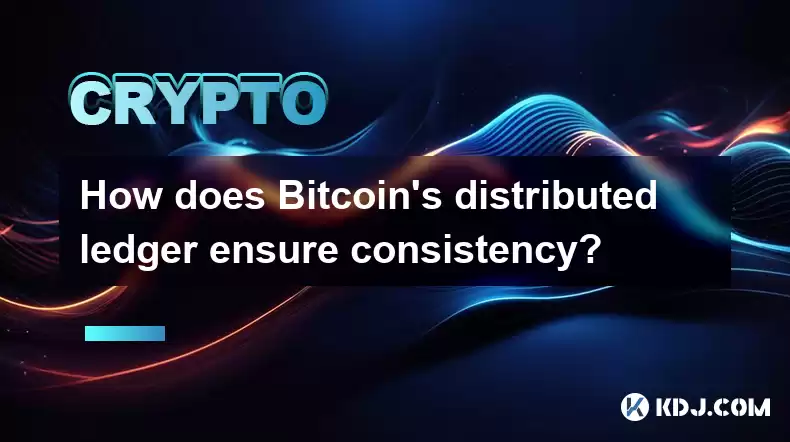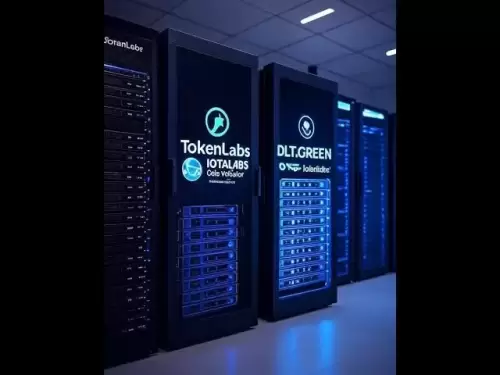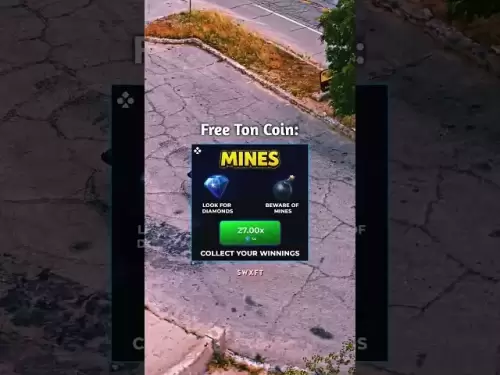-
 Bitcoin
Bitcoin $118000
-1.29% -
 Ethereum
Ethereum $3758
-3.52% -
 XRP
XRP $3.113
-5.04% -
 Tether USDt
Tether USDt $0.9998
-0.05% -
 BNB
BNB $818.5
-3.23% -
 Solana
Solana $181.9
-5.10% -
 USDC
USDC $0.9997
-0.04% -
 Dogecoin
Dogecoin $0.2239
-8.33% -
 TRON
TRON $0.3233
0.95% -
 Cardano
Cardano $0.7842
-6.81% -
 Hyperliquid
Hyperliquid $43.35
-2.12% -
 Sui
Sui $3.894
-9.97% -
 Stellar
Stellar $0.4176
-6.99% -
 Chainlink
Chainlink $17.97
-6.68% -
 Bitcoin Cash
Bitcoin Cash $576.7
-2.30% -
 Hedera
Hedera $0.2671
-7.23% -
 Avalanche
Avalanche $24.64
-6.12% -
 UNUS SED LEO
UNUS SED LEO $8.972
0.08% -
 Litecoin
Litecoin $108.1
-6.55% -
 Toncoin
Toncoin $3.198
-5.94% -
 Shiba Inu
Shiba Inu $0.00001325
-6.80% -
 Ethena USDe
Ethena USDe $1.001
-0.04% -
 Uniswap
Uniswap $10.27
-7.02% -
 Polkadot
Polkadot $3.935
-7.49% -
 Monero
Monero $317.7
-2.24% -
 Dai
Dai $0.9999
0.00% -
 Bitget Token
Bitget Token $4.550
-3.85% -
 Pepe
Pepe $0.00001179
-8.68% -
 Cronos
Cronos $0.1418
-2.34% -
 Aave
Aave $286.2
-6.49%
How does Bitcoin's distributed ledger ensure consistency?
Bitcoin's distributed ledger employs a consensus mechanism, timestamped transactions, and cryptographic hashing to ensure consistency and prevent tampering or corruption.
Feb 22, 2025 at 10:06 pm

Key Points:
- Bitcoin employs a distributed ledger, also known as a blockchain, to maintain a tamper-proof and consistent record of transactions.
- The blockchain is a decentralized network of computers that collectively validate and store transaction data.
- Bitcoin's distributed ledger ensures consistency through consensus mechanisms and cryptographic algorithms.
How does Bitcoin's distributed ledger ensure consistency?
1. Decentralized Network:
- Bitcoin's blockchain network consists of thousands of miners, each running a full node.
- Nodes store a complete copy of the blockchain and validate transactions independently.
- This decentralized structure prevents any single entity from manipulating or corrupting the ledger.
2. Consensus Mechanisms:
- The most critical aspect of Bitcoin's distributed ledger is its consensus mechanism, which ensures that all nodes agree on the state of the ledger.
- The Proof-of-Work (PoW) mechanism, used in Bitcoin, requires miners to solve complex mathematical puzzles to validate transactions.
- The winner of the puzzle broadcasts their solution to the network, and all other nodes verify its validity.
- The consensus mechanism ensures that only valid transactions are added to the blockchain, fostering consistency.
3. Immutable Blockchain:
- Bitcoin's blockchain design employs cryptographic hashing functions to create an immutable ledger.
- Each transaction is recorded as a block, which includes a unique hash value.
- The hash value is generated from the data in the block and the hash value of the previous block.
- Any attempt to alter a block in the blockchain would invalidate its hash value, making it easily detectable by other nodes and rejected.
4. Time-Stamped Transactions:
- Transactions on the Bitcoin blockchain are timestamped, providing temporal consistency.
- Each block in the blockchain contains a timestamp, representing the time when the block was added to the ledger.
- This chronologically ordered record of transactions ensures that the sequence of events is maintained, preventing double-spending or other inconsistencies.
5. Finality and Confirmation:
- Bitcoin transactions are not immediately considered final but require confirmation.
- Once a transaction is included in a block, it is considered one confirmation.
- The more confirmations a transaction receives, the less likely it is to be reversed.
- This process of confirmation enhances the consistency of the ledger by reducing the possibility of fraudulent or erroneous transactions being accepted.
FAQs:
Q: What is a distributed ledger?
A: A distributed ledger is a digital record of transactions that is shared across a network of computers. Each computer has a complete copy of the ledger, and any changes must be validated by the majority of the network before they are accepted.
Q: How does Bitcoin's distributed ledger differ from traditional databases?
A: Traditional databases are centralized, meaning that they are stored on a single server. This makes them vulnerable to hacking and data loss. Bitcoin's distributed ledger is decentralized, meaning that it is stored on a network of computers, making it more secure and resilient.
Q: What is the purpose of a consensus mechanism in Bitcoin?
A: The consensus mechanism in Bitcoin is used to ensure that all nodes in the network agree on the state of the ledger. This is necessary to prevent double-spending and other types of fraud.
Disclaimer:info@kdj.com
The information provided is not trading advice. kdj.com does not assume any responsibility for any investments made based on the information provided in this article. Cryptocurrencies are highly volatile and it is highly recommended that you invest with caution after thorough research!
If you believe that the content used on this website infringes your copyright, please contact us immediately (info@kdj.com) and we will delete it promptly.
- XRP Price Prediction: July 29th - Will XRP Break Free?
- 2025-07-29 15:30:12
- SEC, Truth Social, and Bitcoin ETFs: A New York Minute on Crypto Regulation
- 2025-07-29 15:10:12
- Bitcoin Treasury Titans: Decoding Strategy, BTC Purchases, and the MSTR Gamble
- 2025-07-29 15:10:12
- Ethereum, Dogecoin, and Little Pepe: A Crypto Trifecta for 2025?
- 2025-07-29 15:35:12
- LILPEPE vs DOGE: The Meme Coin Landscape in 2025
- 2025-07-29 15:40:13
- Dogecoin vs. Little Pepe: The Meme Coin Throne in 2025
- 2025-07-29 15:45:12
Related knowledge

What is Chainlink (LINK)?
Jul 22,2025 at 02:14am
Understanding Chainlink (LINK): The Decentralized Oracle NetworkChainlink is a decentralized oracle network designed to bridge the gap between blockch...

What is Avalanche (AVAX)?
Jul 22,2025 at 08:35am
What is Avalanche (AVAX)?Avalanche (AVAX) is a decentralized, open-source blockchain platform designed to support high-performance decentralized appli...

What is Polkadot (DOT)?
Jul 19,2025 at 06:35pm
Understanding the Basics of Polkadot (DOT)Polkadot (DOT) is a multi-chain network protocol designed to enable different blockchains to transfer messag...

What is Litecoin (LTC)?
Jul 23,2025 at 11:35am
Overview of Litecoin (LTC)Litecoin (LTC) is a peer-to-peer cryptocurrency that was created in 2011 by Charlie Lee, a former Google engineer. It is oft...

What is Monero (XMR)?
Jul 21,2025 at 10:07am
What is Monero (XMR)?Monero (XMR) is a decentralized cryptocurrency designed to provide enhanced privacy and anonymity for its users. Unlike Bitcoin a...

How to add indicators to Ethereum chart on TradingView?
Jul 19,2025 at 07:15am
What Is an Ethereum Chart on TradingView?The Ethereum chart on TradingView is a visual representation of the price movement of Ethereum (ETH) over a s...

What is Chainlink (LINK)?
Jul 22,2025 at 02:14am
Understanding Chainlink (LINK): The Decentralized Oracle NetworkChainlink is a decentralized oracle network designed to bridge the gap between blockch...

What is Avalanche (AVAX)?
Jul 22,2025 at 08:35am
What is Avalanche (AVAX)?Avalanche (AVAX) is a decentralized, open-source blockchain platform designed to support high-performance decentralized appli...

What is Polkadot (DOT)?
Jul 19,2025 at 06:35pm
Understanding the Basics of Polkadot (DOT)Polkadot (DOT) is a multi-chain network protocol designed to enable different blockchains to transfer messag...

What is Litecoin (LTC)?
Jul 23,2025 at 11:35am
Overview of Litecoin (LTC)Litecoin (LTC) is a peer-to-peer cryptocurrency that was created in 2011 by Charlie Lee, a former Google engineer. It is oft...

What is Monero (XMR)?
Jul 21,2025 at 10:07am
What is Monero (XMR)?Monero (XMR) is a decentralized cryptocurrency designed to provide enhanced privacy and anonymity for its users. Unlike Bitcoin a...

How to add indicators to Ethereum chart on TradingView?
Jul 19,2025 at 07:15am
What Is an Ethereum Chart on TradingView?The Ethereum chart on TradingView is a visual representation of the price movement of Ethereum (ETH) over a s...
See all articles

























































































